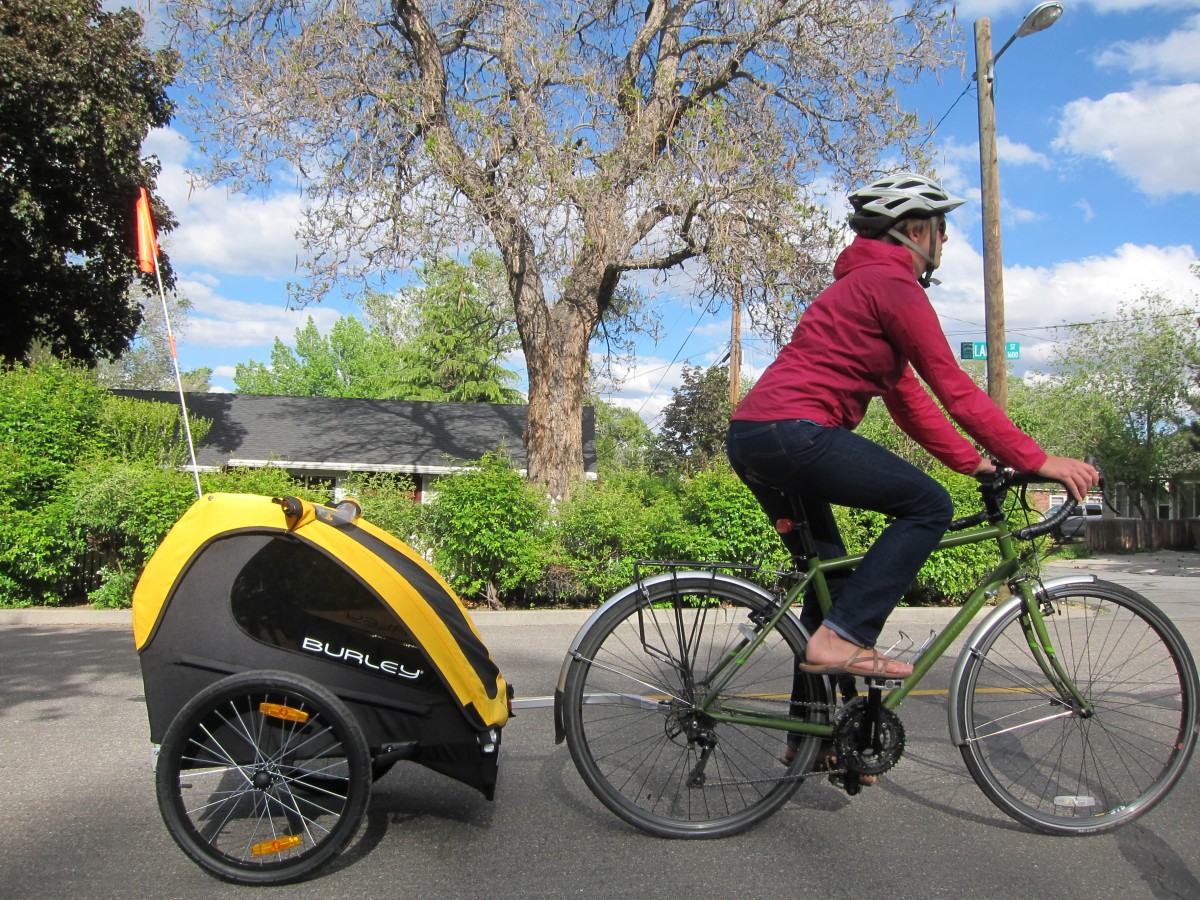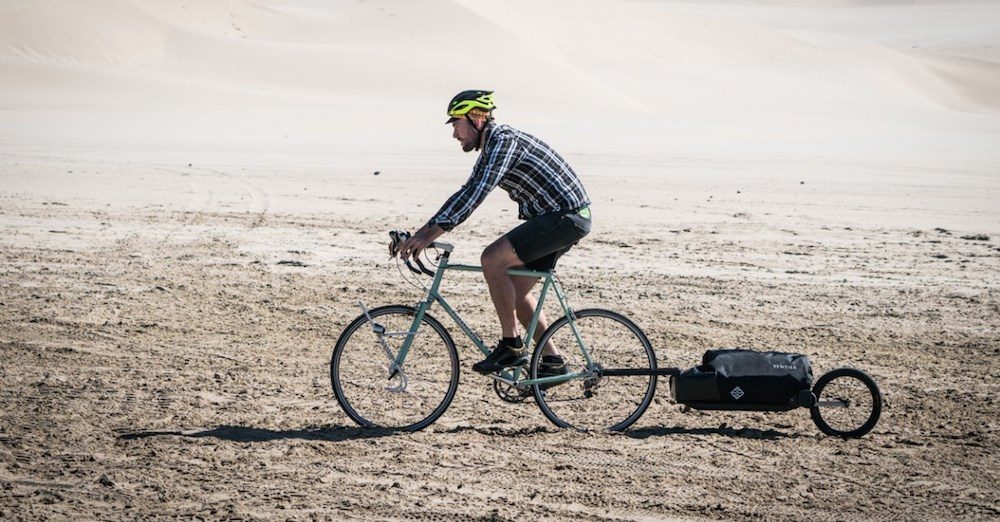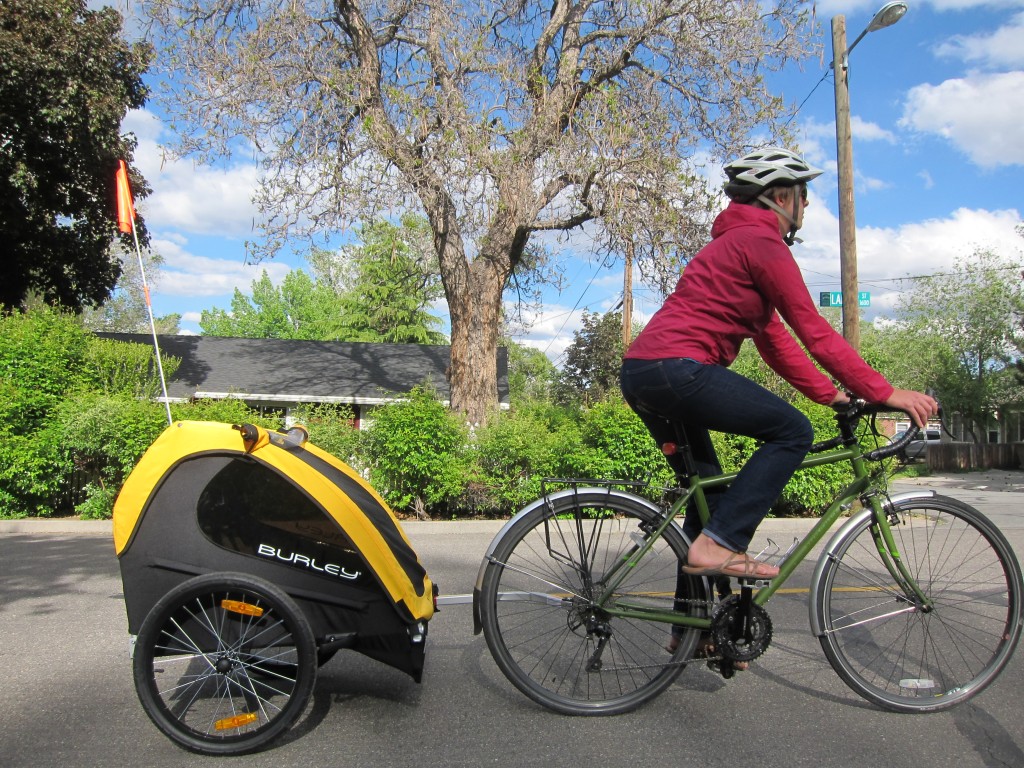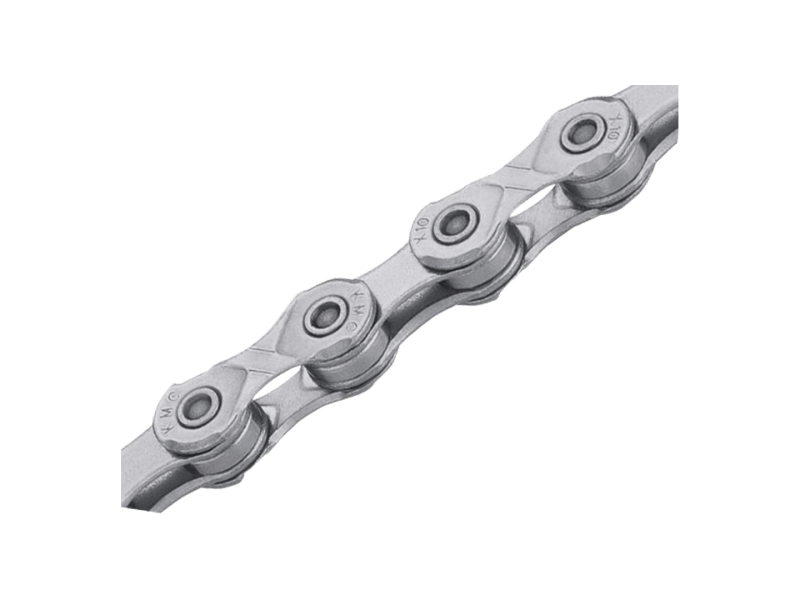Yes, a road bike can pull a bike trailer. It requires proper setup and attention to weight limits.
Road bikes are designed for speed and efficiency, making them popular among cyclists. Many wonder if these lightweight bikes can handle the added burden of a bike trailer. The answer is yes, but there are important factors to consider. Proper attachment of the trailer is crucial to ensure safety and stability.
It's also important to not exceed the bike’s weight capacity, which can affect handling and braking. Additionally, using a trailer can change the bike’s aerodynamics, requiring the rider to adjust their speed and maneuvering techniques. With the right setup, a road bike can effectively and safely pull a bike trailer.
Choosing The Right Road Bike
Choosing the right road bike is crucial for pulling a bike trailer. You need a bike that is strong, lightweight, and easy to handle. The bike's material and wheel size play a big role in this. Let's explore these aspects in detail.
Frame Material
The frame material affects the bike’s weight and strength. Common materials include:
- Aluminum: Lightweight and affordable. Ideal for beginners.
- Carbon Fiber: Very light and strong. Best for performance.
- Steel: Durable and strong. Heavier but more affordable.
- Titanium: Lightweight, strong, and durable. Expensive but high quality.
Choose a frame material based on your needs and budget.
Wheel Size And Type
Wheel size and type impact the bike's speed and handling. Common wheel sizes are:
| Wheel Size | Benefits |
|---|---|
| 700c | Standard size. Offers good speed and stability. |
| 650b | Smaller size. Provides better control and comfort. |
The type of tires also matters. Consider:
- Road Tires: Thin and smooth. Best for paved roads.
- Gravel Tires: Wider with more grip. Suitable for mixed terrains.
- Touring Tires: Durable and puncture-resistant. Ideal for long distances.
Picking the right wheel size and type ensures a safe and enjoyable ride.
Types Of Bike Trailers
Road bikes can pull bike trailers. There are different types of bike trailers available. Each type serves a unique purpose. Let's explore some common types.
Cargo Trailers
Cargo trailers are ideal for transporting items. You can carry groceries, camping gear, or other bulky items. These trailers have a flatbed or enclosed design. A flatbed design allows carrying odd-shaped items. An enclosed design protects items from the weather.
Here is a table summarizing cargo trailer features:
| Feature | Description |
|---|---|
| Capacity | Up to 100 pounds |
| Design | Flatbed or enclosed |
| Usage | Groceries, camping gear, bulky items |
These trailers attach easily to the bike. They have a low center of gravity. This makes them stable and easy to maneuver.
Child Trailers
Child trailers are perfect for family rides. They are designed to carry children safely. These trailers often have a protective canopy. This shields the child from the weather.
Here are some key features of child trailers:
- Seats one or two children
- Five-point harness for safety
- Protective canopy
- Storage space for toys and snacks
Child trailers offer a smooth ride. They have a suspension system to absorb bumps. This makes the journey comfortable for the child.
Assessing Compatibility
Can a road bike pull a bike trailer? Assessing compatibility is key. There are several factors to consider before attaching a bike trailer to a road bike. Understanding the hitch system and axle compatibility is crucial. This ensures a safe and enjoyable ride.
Hitch System
The hitch system connects the trailer to the bike. Most trailers use a universal hitch. This system fits many bike types, but not all. Check the hitch type of your trailer. Some trailers require a specific hitch for road bikes. Make sure the hitch is secure and does not interfere with the bike's rear wheel.
Universal hitches are common and easy to install. They usually fit on the bike's rear axle or frame. Ensure the hitch is compatible with your bike's frame design. Some road bikes have unique frame shapes. These may need special adapters for the hitch.
Axle Compatibility
Axle compatibility is another important factor. Road bikes often have different axle sizes. Trailer hitches must fit the axle correctly. Measure your bike's axle before buying a trailer. Most road bikes have quick-release or thru-axles.
Quick-release axles are common in older road bikes. They are easy to remove and install. Ensure the hitch fits the quick-release mechanism. Thru-axles are found in newer road bikes. They provide more stability. Check if your trailer hitch is compatible with thru-axles.
Here is a simple table to understand axle types:
| Axle Type | Common Use | Hitch Compatibility |
|---|---|---|
| Quick-release | Older road bikes | Universal hitches |
| Thru-axle | Newer road bikes | Specific hitches |
Always verify the axle size and hitch type. This ensures a safe connection between the bike and trailer.
Installing A Bike Trailer
Installing a bike trailer on your road bike can seem daunting. But with the right tools and steps, it's straightforward. Here’s how to do it.
Tools Needed
- Wrench set
- Screwdriver
- Allen keys
- Lubricant
Step-by-step Guide
- Check your bike: Ensure your bike is in good condition. Look for any damage or wear.
- Attach the hitch: Most trailers use a hitch system. Attach the hitch to your bike’s rear axle.
- Secure the hitch: Use your wrench set to tighten the hitch bolts. Make sure the hitch is stable.
- Connect the trailer: Align the trailer's connector with the hitch. Attach them securely.
- Test the connection: Give the trailer a gentle pull. Ensure it's firmly attached.
- Check the wheels: Ensure the trailer wheels are properly inflated. Check for any punctures.
- Lubricate the parts: Apply lubricant to moving parts. This ensures smooth operation.
Following these steps ensures a safe and secure installation. Now, you are ready to hit the road with your trailer.
Safety Considerations
Pulling a bike trailer with a road bike requires attention to safety. Ensure you understand key aspects before starting your journey. This section covers safety considerations for a smooth and secure ride.
Weight Limits
Each bike trailer has a maximum weight limit. Check the manufacturer's guidelines. Exceeding the weight limit can cause accidents. Make sure your road bike can handle the added weight. Road bikes are designed for speed, not heavy loads. Be cautious and mindful of your bike's capabilities.
Brake Efficiency
Adding a bike trailer affects your bike's brake efficiency. Test your brakes before hitting the road. Ensure they can handle the extra weight. You may need to adjust or upgrade your brakes. Effective braking is crucial for safety, especially downhill.

Credit: www.outdoorgearlab.com
Handling And Stability
Handling and stability are crucial for pulling a bike trailer with a road bike. Ensuring smooth rides and safety requires mastering specific skills. This section covers balancing tips and turning techniques to enhance your experience.
Balancing Tips
Balance is key to a safe ride with a bike trailer. Here are some essential tips:
- Distribute weight evenly: Ensure the trailer's load is balanced.
- Check tire pressure: Properly inflated tires improve stability.
- Use a stable stance: Keep your body centered while riding.
- Practice braking: Get used to the added weight when stopping.
Turning Techniques
Turning with a bike trailer requires special attention. Follow these techniques for safer turns:
- Slow down: Reduce speed before entering a turn.
- Wider turns: Make wider turns to avoid tipping.
- Lean gently: Lean slightly to maintain balance.
- Watch the trailer: Be mindful of the trailer's path.
By mastering these handling and stability techniques, you'll enjoy safer and smoother rides with your bike trailer.
Maintenance And Upkeep
Maintaining a road bike and its trailer ensures a smooth and safe ride. Proper upkeep helps prevent breakdowns and ensures longevity. Here, we discuss essential maintenance tasks for your bike and trailer.
Regular Inspections
Conduct regular inspections to identify any wear and tear. Check the tires for any punctures or damage. Inspect the brakes to ensure they are functioning properly. Look at the trailer hitch and attachment points for any signs of stress or damage.
- Check tire pressure weekly
- Inspect brake pads monthly
- Examine the trailer hitch every ride
Lubrication Tips
Keeping your bike's moving parts well-lubricated is crucial. Lubricate the chain to prevent rust and ensure smooth movement. Apply grease to the trailer hitch to avoid wear and ensure easy attachment.
- Clean the chain before lubrication
- Use bike-specific lubricants
- Apply grease to the hitch every month
Lubrication helps maintain the bike's performance and the trailer's stability. Regular maintenance keeps both the bike and trailer in top shape.

Credit: www.cyclingabout.com
Expert Tips And Tricks
Pulling a bike trailer with a road bike can be challenging. Proper techniques can make it easier. Here are some expert tips and tricks to help you.
Optimizing Performance
To achieve optimal performance, consider these key factors:
- Tire Pressure: Ensure your tires are properly inflated. This reduces rolling resistance.
- Gear Selection: Use lower gears for easier pedaling. This helps maintain a steady pace.
- Weight Distribution: Evenly distribute the load in your trailer. This keeps the bike balanced.
- Aerodynamics: Position the trailer to minimize wind resistance. This improves speed.
Common Mistakes To Avoid
Avoid these common mistakes to ensure a smooth ride:
- Overloading: Do not exceed the trailer's weight limit. This can cause instability.
- Incorrect Hitching: Ensure the trailer is securely attached. A loose hitch can be dangerous.
- Ignoring Maintenance: Regularly check your bike and trailer for wear and tear. This prevents breakdowns.
- Improper Braking: Apply brakes gently. Sudden stops can cause the trailer to sway.
By following these tips, you can enjoy a safe and efficient ride with your road bike and trailer.

Credit: www.outdoorgearlab.com
Frequently Asked Questions
Can A Road Bike Handle A Bike Trailer?
Yes, a road bike can handle a bike trailer. Ensure the trailer hitch fits securely. Check your bike's weight limit to avoid overloading.
What Type Of Trailer Suits A Road Bike?
Lightweight trailers are best for road bikes. Look for trailers specifically designed for road use. They should have narrow wheels and minimal drag.
Will Pulling A Trailer Damage My Road Bike?
No, pulling a trailer won't damage your road bike if used correctly. Ensure proper hitch installation. Avoid overloading and maintain steady speeds.
How Does Towing Affect Road Bike Performance?
Towing affects speed and maneuverability. Expect slower acceleration and increased braking distances. Keep a steady pace to maintain control.
Conclusion
A road bike can indeed pull a bike trailer with the right setup. Ensure your bike and trailer are compatible. Check your bike's capacity and install the trailer correctly. Always prioritize safety for both rider and cargo. Enjoy the benefits of combining cycling with hauling.
Happy riding!

No comments:
Post a Comment